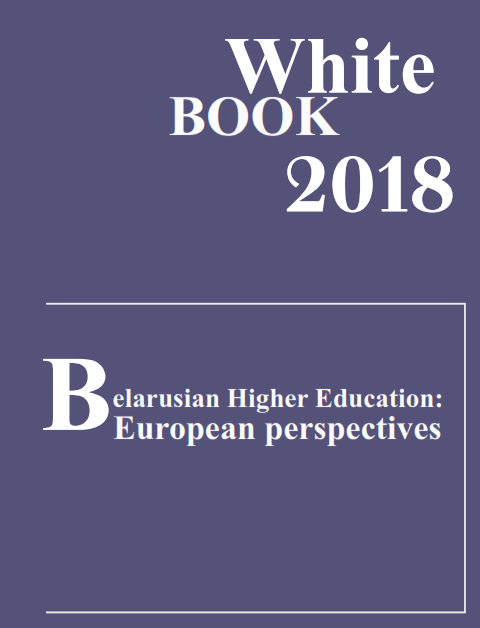The experts of the Belarusian Independet Bologna Committee has prepared the second White Book on Belarusain higher education. The analysis structure and methodology in the White Book follow the structure and methodology of the Implementation Report.
In 2011, preceding consideration of Belarus’ application to join the European Higher Education Area (EHEA), the Independent Bologna Committee, an initiative which included independent experts and civil society organisations interested in practical implementation of the Bologna Process values and tools in the national higher education system, was established in Minsk. In cooperation with the Belarusian National Platform of the European Partnership Civil Society Forum (EaP CSF) and in dialogue with European organisations and institutions, the IBC monitors modernisation of the Belarusian higher education system and advocates the interests of higher education stakeholders successfully using such tools as alternative reports, monitoring reports, policy papers, and recommendations.
In 2013, we prepared the first White Book. Reforming of the Belarusian Higher School in accordance with the aims, values and main directions of the European Higher Education Area policy in which we attempted to answer the question to what extent the Belarusian governmental education policy is compatible with the EHEA development strategy. However, our objective is not simply to state numerous problems of the Belarusian higher education system. We strive to outline a clear and well-founded action plan, which would enable our country to move forward along the path of modernising the higher education system decisively.
In 2015, Belarus was accepted to the EHEA upon undertaking to reform its higher education system according to the Roadmap. By 2018, the new Bologna architecture, other EHEA tools and values should have been formalised in the Belarusian laws. As our monitoring and the final report of the Bologna advisory group demonstrate, Belarus has not been able to make any significant progress in the Roadmap implementation. However, it is possible to understand the real condition of the Belarusian higher education system and its European prospects only in comparison with other EHEA members, their achievements and problems. In reality, implementation of the EHEA policy declared by ministerial summits, in various countries is not always successful and not equally successful in all aspects. The 2018 Implementation Report prepared for the Paris summit distinctly demonstrates this. he Ministry of Education of Belarus has provided some information for the report. However, as our analysis demonstrates, this information is incomplete and at times not absolutely reliable. he Independent Bologna Committee has prepared the second White Book European Prospects of the Belarusian Higher Education, which fills the gaps of the official report by the Ministry of Education and permits to compare Belarus’ implementation of the Bologna tools and principles with the situation in other EHEA countries.
The analysis structure and methodology in the White Book follow the structure and methodology of the Implementation Report (2018 IR) mostly to ensure maximum comparability of the results. In a number of sections of the White Book, we used other international and European databases as well, for comparative analysis of the value dimension of higher education in particular.
In some cases, comparative analysis becomes difficult because of significant differences in the statistical values calculated or of the lack of information in public access. he Belarusian higher education system lacks transparency. In recent years, its transparency has decreased. However, without rejecting critical assessment of the situation with the reforms of the Belarusian higher education system, the authors of the White Book considered it their duty to record positive changes in the educational policy and academic practice, and to appreciate the European prospects of the Belarusian higher education system in the challenges it faces.
The paper was prepared by a group of authors: the introduction was prepared by Vladimir Dounaev and Irina Dounaeva; chapter 1 by Vladimir Dounaev; chapters 2 to 5 by Olga Kryzhanovskaya; chapter 6 by Siarhei Vetokhin; chapter 7 by Andrei Laurukhin; chapter 8 by Pavel Tereshkovich; the conclusion by Vladimir Dounaev. The analysis of the regulatory framework was provided by Aleh Hrableuski.


